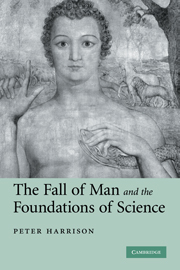3 - Seeking certainty in a fallen world
Published online by Cambridge University Press: 24 October 2009
Summary
However, since different hypotheses are sometimes offered for one and the same motion (for example, eccentricity and an epicycle for the sun's motion), the astronomer will take as his first choice that hypothesis which is the easiest to grasp. The philosopher will perhaps rather seek the semblance of the truth. But neither of them will understand or state anything certain, unless it has been divinely revealed to him.
Andreas Osiander, Preface to Copernicus, De Revolutionibus (1543)Some, following the letter of Scripture, used what the sacred writers touched on [in passing] … concerning cosmology and natural things in order to build a new sacred physics … Others, dampening down the light of the intellect, called for some other more divine and more perfect light stemming from heavenly revelation to be the foundation of philosophy, neglecting the letter of Scripture and [relying on] the intermediary of the machine of allegory.
Johann Brucker, Historia critica philosophiae (1743)But there are Enthusiasts in Philosophy, as well as in Religion; Men that go by no principles, but their own conceit and fancy, and by a Light within, which shines very uncertainly, and, for the most part, leads them out of the way of truth.
Thomas Burnet, The Theory of the Earth (1697)Information
- Type
- Chapter
- Information
- The Fall of Man and the Foundations of Science , pp. 89 - 138Publisher: Cambridge University PressPrint publication year: 2007
